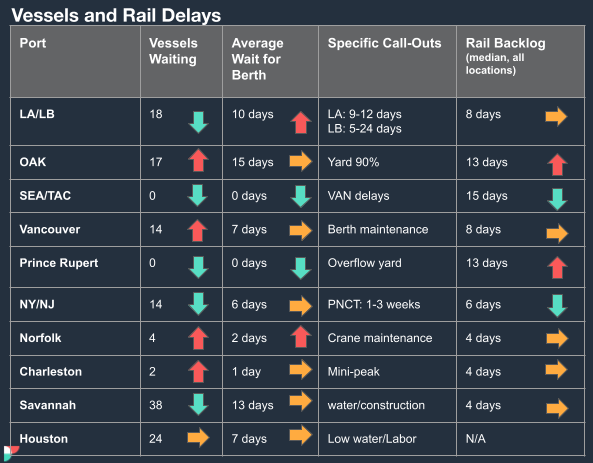Shipping between Asia and Europe continues to be restricted by ongoing supply chain woes — exacerbated by low demand and port congestion in some of the major gateways in Europe.
In its latest analysis, Flexport said there is continued rate pressure on spot rates due to lower demand.
On the capacity side, space is available but it is impacted by additional blank sailings and delays due to the port congestion in Europe.
"No peak season"
"There is no peak season and demand has been slowing down. Supply is still relatively tight due to the large amount of blank sailings, vessel sliding, and port omissions," Flexport said in its freight market update on August 9.
"The port congestion in Europe, particularly Hamburg and Rotterdam, has reached critical levels causing further delays and late return of vessels to Asia," it added.
Flexport also noted that there are indications of power cuts in Ningbo (Zhejiang province) which would affect production output but there is still no official information available.
For Asia-North America, the freight forwarder said spot rates continue to fall with blank sailings on the rise.
"Blank sailings remain all too common in the market, which carriers are pairing with the low spot rates and demand. Schedule reliability among the alliances remains low and varied," Flexport said in its update, adding that on-street container dwell is "elevated" and inventory on terminals is reaching max capacity at some inland locations.

Photo: Flexport
Flexport said containers are ground stacked at the rail as a result of the insufficient chassis supply and/or rail traffic imbalances in: Chicago, Dallas, Kansas City, Memphis, Denver, St Louis, Santa Teresa, and Omaha.
Air freight demand "quite weak"
In terms of air freight, Flexport said for North China — which includes Shanghai — overall demand in the market is "quite weak," resulting in rate decreases.
In the East Westbound (FEWB) market, it noted that airlines continue to maintain lower flight frequencies to FRA due to airport handling restrictions and are offering more flights to AMS at lower rates.
"Unlike the week prior, carriers have not announced any flight cancellations and there is sufficient capacity for both Transpacific Eastbound (TPEB) and FEWB lanes," the freight forwarder added.
For South China — Shenzhen, Guangzhou, Dongguan, and Hong Kong — Flexport said the market demand remains soft for both TPEB and FEWB lanes and rates levels have decreased slightly from last week.
"Shenzhen - Hong Kong (SZX-HKG) cross border operations continue to be affected by Covid surges and a capacity quota reduction. Transit times for affected shipments are expected to be prolonged by 2-3 days," it added.
For Europe, Flexport said air freight demand continues to trend at lower levels and is expected to pick up slowly from mid-September.
It added that Transatlantic belly capacity ex-European hubs continue to be strong, helping maintain lower rate levels while fuel price remains high.
Meanwhile, ground handling operations in major European hubs have improved compared to July. Although the situation in FRA remains volatile, with contingency plans are in place to avoid significant delays.
For the Americas, Flexport said export demand remains steady from all markets and US airports are running at a "normal pace."
"Capacity is opening up further, especially into Europe, where most carriers have increased the number of passenger flights for their summer schedules," the freight forwarder added.
"Shipments into Europe could experience additional destination dwell time due to the labour shortages in some western European hubs," it said.